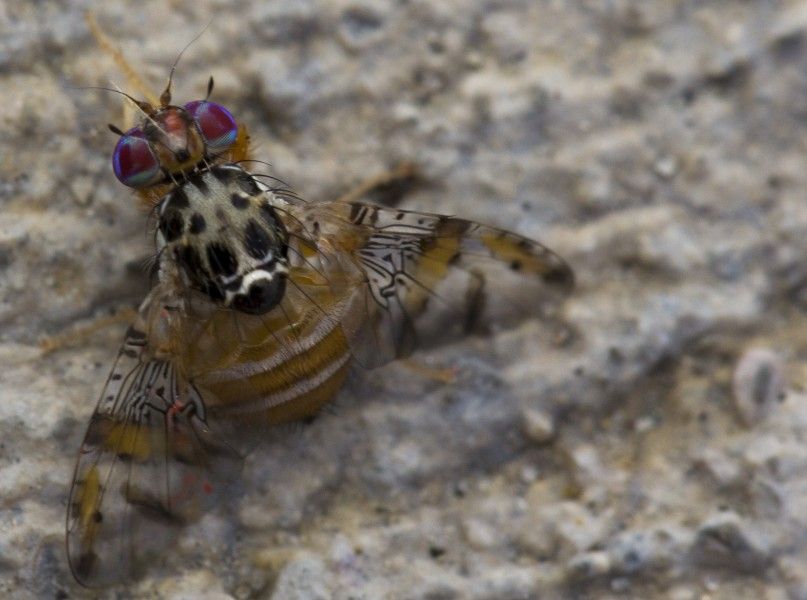No one hates fruit flies more than farmers.
Just last year, Napa’s olive crops were destroyed by the pests, costing many farmers much if not all their crop. This year, Australia’s farmers felt a hit, as the flies caused a $300 million market loss. But now, scientists think they have a solution to end the pests’ destruction, and it doesn’t start with fewer fruit flies; just different sexes.
Currently, various methods like insecticides, baited traps, and the Sterile Insect Technique (SIT) are used to control fruit flies. But there may soon be a new method on the market. Scientists from the University of East Anglia and Oxitec Ltd. say that they have genetically engineered male flies to only produce male offspring, which could be used to effectively suppress fruit fly populations.
“Of all of the current techniques used to control these flies, SIT is considered the most environmentally friendly as it uses sterile males to interrupt matings between wild males and females,” said researcher Dr. Philip Leftwich. “The down side is that these males don’t tend to mate as well in the wild because the irradiation method used for sterilisation weakens them. Our research looked at whether releasing Oxitec flies, which are genetically engineered so that only male fly offspring survive, could provide a better alternative.”
This kind of male-modification might be a “better” alternative, according to Leftwich, because there is no radiation needed to sterilize the pests before release, making them “healthier” flies.
The Oxitec method–works by introducing a female-specific gene into the flies, and this stops development before the female reaches its reproductive stage. Populations of healthy males and females can be produced by adding a chemical repressor, which when absent in the genetically engineered diet, only males survive. If these surviving males are released, mate with local wild pest females, and pass the female specific self-limiting trait on, there will be no viable female offspring.
Testing the method with the Mediterranean fruit fly, a pest that gorges itself on more than 300 types of fruits, veggies and nuts, the scientists released the modified male flies into eight-meter greenhouses with lemon trees. The scientists saw a “rapid population collapse” in the closed system.
“This method presents a cheap and effective alternative to irradiation,” said Leftwich. “We believe this is a promising new tool to deal with insects which is both environmentally friendly and effective.”
The next step of the research will be to conduct trials in open-field studies, which await approval.
If you have any news, insights to share, would like to pitch guest posts, commentaries or white papers, drop us a line at [email protected].
FEATURED PHOTO: siamesepuppy/Flickr





